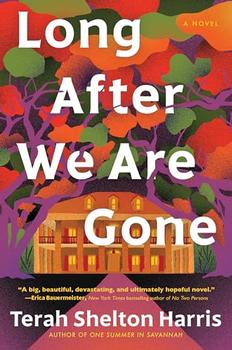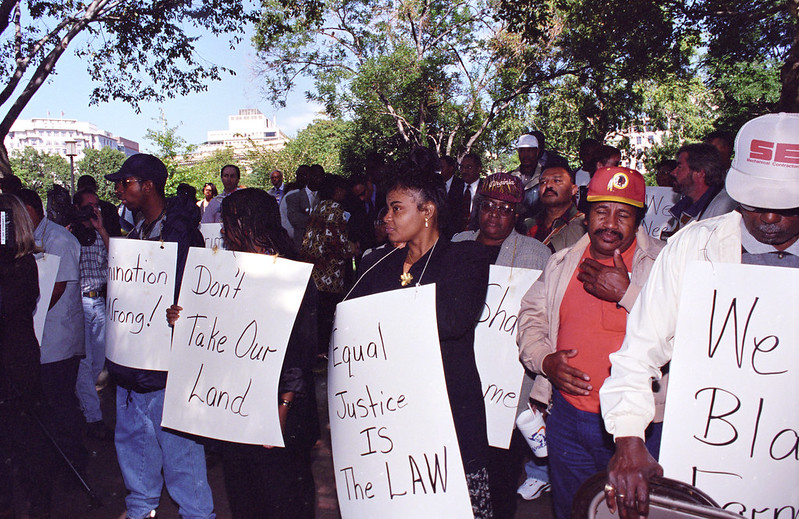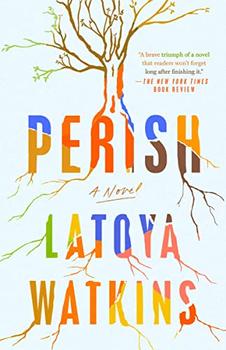Summary | Excerpt | Reading Guide | Discuss | Reviews | Beyond the book | Read-Alikes | Genres & Themes | Author Bio

A Novel
by Terah Shelton HarrisAn explosive and emotional story of four siblings―each fighting their own personal battle―who return home in the wake of their father's death in order to save their family's home from being sold out from under them, from the author of One Summer in Savannah.
"Don't let the white man take the house."
These are the last words King Solomon says to his son before he dies. Now all four Solomon siblings must return to North Carolina to save the Kingdom, their ancestral home and 200 acres of land, from a development company, who has their sights set on turning the valuable waterfront property into a luxury resort.
While fighting to save the Kingdom, the siblings must also save themselves from the secrets they've been holding onto. Junior, the oldest son and married to his wife for 11 years, is secretly in love with another man. Second son, Mance, can't control his temper, which has landed him in prison more than once. CeCe, the oldest daughter and a lawyer in New York City, has embezzled thousands of dollars from her firm's clients. Youngest daughter, Tokey, wonders why she doesn't seem to fit into this family, which has left an aching hole in her heart that she tries to fill in harmful ways. As the Solomons come together to fight for the Kingdom, each of their façades begins to crumble and collide in unexpected ways.
Told in alternating viewpoints, Long After We Are Gone is a searing portrait on the power of family and letting go of things that no longer serve you, exploring the burden of familial expectations, the detriment of miscommunication, and the lessons and legacies we pass on to our children.
Terah Shelton Harris's marvelous family drama Long After We Are Gone begins with the death of the Solomon family patriarch, King, whose last words are "don't let the white man take the house." As his four adult children return to the farm that their ancestors have occupied for generations, they discover how difficult it will be to fulfill King's wish. Because King had no will, developers are challenging the family's ownership of the valuable waterfront property. Although the property dispute provides the bones of the story, at its heart are its four main characters. Each is beautifully drawn and unique, coming into the novel harboring painful secrets that they're unwilling to share with the people who should love them unconditionally. Separated by age and temperament, they all feel isolated from the others in their own ways. As the book begins they've individually hit crises unrelated to King's death, aching to reach a point where their lives are stable — and the pain of each situation is palpable. The siblings are all deeply flawed but so relatable that they feel like friends rather than characters in a book...continued
Full Review
 (642 words)
(642 words)
(Reviewed by Kim Kovacs).
 In Terah Shelton Harris's novel Long After We Are Gone, the family at the heart of the story is at risk of losing their land because it's considered "heir property" (aka "heir's property" and "heirs' property"). The author defines this as "a form of ownership in which descendants inherit an interest in the land, similar to holding stock in a company. Heir property does not constitute a clear title which means the land is vulnerable to developers, corporations, and governments to use 'legal' laws to acquire the land." Because of the vagaries of ownership associated with heir property, it's often been used to deprive Black farmers of their inherited land — just one of many such tools that have been systematically employed to ...
In Terah Shelton Harris's novel Long After We Are Gone, the family at the heart of the story is at risk of losing their land because it's considered "heir property" (aka "heir's property" and "heirs' property"). The author defines this as "a form of ownership in which descendants inherit an interest in the land, similar to holding stock in a company. Heir property does not constitute a clear title which means the land is vulnerable to developers, corporations, and governments to use 'legal' laws to acquire the land." Because of the vagaries of ownership associated with heir property, it's often been used to deprive Black farmers of their inherited land — just one of many such tools that have been systematically employed to ...

If you liked Long After We Are Gone, try these:

by LaToya Watkins
Published 2023
From a stunning new voice, comes a powerful debut novel, Perish, about a Black Texan family, exploring the effects of inherited trauma and intergenerational violence as the family comes together to say goodbye to their matriarch on her deathbed.

by Shelley Read
Published 2023
Set amid Colorado's wild beauty, a heartbreaking coming-of-age story of a resilient young woman whose life is changed forever by one chance encounter. A tragic and uplifting novel of love and loss, family and survival—and hope.